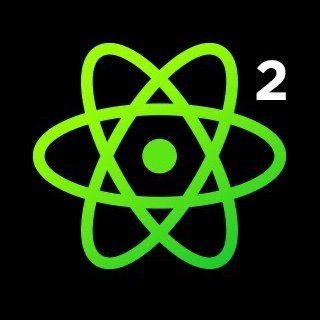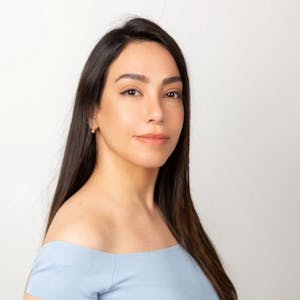Cuando la gente me pregunta cuál es la habilidad más importante que puedo aprender para mejorar en mi trabajo y obtener ascensos, siempre les digo: El arte de la comunicación y la interacción humana. Cuando trabajamos como ingenieros, interactuamos con muchas personas a diario. Es crucial que aprendamos a negociar y persuadir a las personas. En esta charla, cubriremos 3 técnicas principales para convertirnos en mejores negociadores. Estas técnicas pueden ayudarnos a interactuar con los demás de manera más efectiva, obtener la aprobación de nuestros proyectos, ascender más fácilmente e incluso ayudarnos en nuestra vida.
Los ingenieros aprenden a negociar
Video Summary and Transcription
Durante esta charla, el orador enfatiza la importancia de las habilidades de negociación en la industria tecnológica y cómo pueden ayudar a desarrollar la carrera profesional. Se discuten las técnicas de espejo y etiquetado como técnicas efectivas para generar confianza y reducir emociones negativas. Se introduce el concepto de ser una esponja, resaltando la importancia de escuchar atentamente en las negociaciones. La charla concluye enfatizando la importancia de las habilidades de comunicación y negociación para los ingenieros y fomenta la autorreflexión y la mejora.
1. Introducción a la Negociación
Durante estos 10 años trabajando en la industria tecnológica, aprendí cómo la negociación y el software pueden hacer crecer tu carrera y ayudarte a alcanzar tus metas aún más rápido. Como programadores, creo que interactuamos con otros la mayor parte del tiempo. El código no solo es para que la máquina lo lea. También es para que los humanos lo lean, comprendan y luego depuren. La negociación es en realidad un arte de una conversación activa y en evolución. El primer consejo del que vamos a hablar hoy es el espejo. El espejo es fundamental para la recopilación de información en una negociación.
Durante estos 10 años trabajando en la industria tecnológica, aprendí cómo la negociación y el software pueden hacer crecer tu carrera y ayudarte a alcanzar tus metas aún más rápido. Es por eso que hoy vamos a hablar de negociación en una conferencia técnica. Un poco sobre mí. Soy Nass. Trabajo en Netflix como colaborador individual. Puedes encontrarme en mi sitio web o en Twitter. Soy mamá de gatos, adicta al café y me encantan las pegatinas. Aunque estudié ciencias de la computación y tomé muchos cursos no académicos durante mi carrera, ninguno de esos programas realmente me enseñó cómo negociar y cómo comunicarme y colaborar.
Como programadores, creo que interactuamos con otros la mayor parte del tiempo. Y durante nuestra rutina diaria de trabajo, trabajamos con clientes, con gerentes de productos y con todas las personas involucradas en el proceso de creación de software. Incluso cuando codificamos, estamos comunicándonos. El código no solo es para que la máquina lo lea. También es para que los humanos lo lean, comprendan y luego lo depuren. Sé que nos estamos moviendo muy rápido para sacar una función tras otra por la puerta. Y la mayoría de nosotros, en estos tiempos, realmente no pensamos en la comunicación y la colaboración y cómo podemos mejorar eso como parte de nuestras habilidades. Pero cuando la gente me pregunta cuál es la habilidad más importante que puedo aprender para convertirme en un mejor ingeniero de software, obtener un ascenso y mejorar mi carrera, siempre les digo que es el arte de la comunicación y la interacción humana. Y hoy vamos a hablar de negociaciones. Entonces, ¿qué son las negociaciones?
Pensamos que las negociaciones deberían ser un tipo de cosa prepreparada. Cuando tenemos una reunión, tenemos que preparar un conjunto de escenarios, un conjunto de preguntas y estar preparados para negociar lo mejor. Pero eso no es cierto. La negociación es en realidad un arte de una conversación activa y en evolución. Es recopilar información mientras hablas con la otra persona y analizar tu próximo movimiento a medida que la conversación avanza. El primer consejo del que vamos a hablar hoy es el espejo. ¿Qué es el espejo? El espejo es fundamental para la recopilación de información en una negociación. Simplemente consiste en repetir las últimas una a tres palabras clave de lo que dijo la otra parte, más una pausa activa. Veamos un ejemplo. Mi principal preocupación está resuelta. Siempre y cuando el cifrado se realice en el cliente en todas partes, lo hacemos. Eso es lo que quería saber. Lamento seguir apareciendo con la pregunta.
2. Mirroring and Labeling
Si recibes este mensaje, ¿cómo aplicas el espejo? ¿Por qué usar el espejo? El espejo muestra que estás prestando atención a la conversación y a la otra persona. Es un factor en la construcción de confianza. Lo segundo de lo que vamos a hablar es el etiquetado. El etiquetado se utiliza para reconocer y reducir las emociones negativas. Cuando etiquetas una emoción, crea una influencia basada en la confianza. El silencio dinámico es como hacer una pausa y crea un mayor impacto en el etiquetado y el espejo.
Si recibes este mensaje, ¿cómo aplicas el espejo? Sacas las palabras clave y haces una oración con ellas y respondes, por ejemplo, Me aseguraré de que el cifrado ocurra en el cliente en todas partes. Y luego haces una pausa activa.
¿Por qué usar el espejo? El espejo muestra que estás prestando atención a la conversación. Estás prestando atención a cada palabra que dicen porque estás sacando esas palabras. Dice que escuché tus palabras. Cuando te reflejas, te conectas con la otra persona. Es un factor en la construcción de confianza, y la construcción de confianza es un factor esencial en la comunicación.
Lo segundo de lo que vamos a hablar hoy es el etiquetado. Todos los días enfrentamos una amplia gama de emociones en el trabajo. Nos irritamos, nos estresamos, nos sentimos presionados, tristes, incluso podemos sentir envidia. Estas emociones negativas realmente obstaculizan nuestro rendimiento en el trabajo. Y una forma de aliviar estas frustraciones de tus colegas y de las personas que experimentan estas emociones negativas es reconocerlo, incluso a ti mismo. El etiquetado no solo se utiliza en las negociaciones, puedes negociar contigo mismo y utilizar el etiquetado. Entonces, el etiquetado se utiliza como una voz para expresar los sentimientos de la otra parte. Puedes decir simplemente cuando alguien está frustrado, decir, parece que estás frustrado, parece que estás triste, entiendo que estás estresado. Solo reconocerlo, reduce la negatividad de esa emoción. Veamos algunos ejemplos. He tenido un año realmente difícil y parece que estás ignorando todo el estrés financiero y personal por el que he pasado. ¿Cómo respondes a una frase que tiene una amplia gama de emociones negativas? Etiquetamos. Reconocemos. Decimos, parece que te preocupa. No quiero que estés estresado. Has pasado por mucho este año. Y solo con esta frase, alivias mucha carga de la otra parte. La investigación muestra que cuando etiquetas una emoción, reduce el impulso negativo entre dos personas y crea una influencia basada en la confianza. Y la confianza es clave esencial para una comunicación activa y realmente efectiva. Si quieres que ambos tips sean realmente excelentes, debes seguir con el silencio dinámico. El silencio dinámico creará un mayor impacto en el etiquetado y el espejo. El silencio dinámico es como hacer una pausa. Solo cuenta hasta tres y haz una pausa.
3. Being a Sponge and Conclusion
Hacer una pausa permite que la etiqueta se asiente. Ser una esponja en la negociación significa escuchar atentamente y permitir que la otra persona se exprese. Cambia tu enfoque de hablar a escuchar en las reuniones. Las habilidades de comunicación y negociación son importantes para los ingenieros y moldean otras habilidades como el liderazgo y la persuasión. Reflexiona sobre tus comunicaciones recientes y aprende de ellas. Utiliza los recursos proporcionados para mejorar tus habilidades de negociación.
Hacer una pausa permitirá que esa etiqueta se asiente y permanezca en la mente de la audiencia.
Ahora, el último consejo, sé una esponja. Ser una esponja en una mesa de negociación es muy diferente a ser una esponja en una junta de negocios. En la junta de negocios, ser una esponja significa que constantemente buscas recopilar información. Pero en el mundo de la negociación y la comunicación, en realidad es lo contrario. Significa que estás escuchando con atención. Eres un gran oyente. Permites que la otra persona se exprese y se comunique cómodamente. Así que la próxima vez que estés en una reunión o estés hablando con un colega, intenta ser un gran oyente. Intenta eliminar la necesidad de simplemente responder y trata de controlarlo. Deja que la otra persona se exprese tanto como quiera contigo. Así que no intentes hablar todo el tiempo. Conténlo y haz una pausa, guarda silencio y permite que la otra persona se exprese. Tu papel como una esponja es absorber esa información. Y ser paciente. Así que la próxima vez que estés en una reunión, intenta cambiar tu enfoque de ser alguien que habla mucho en la reunión a ser un oyente. Absorbe la información primero y luego formula una declaración. Cuando se trata de comunicación e interacción humana, realmente podemos resumir todo en una charla de siete minutos. Estos son solo la punta del iceberg. Los seres humanos son muy complicados y prefieren métodos personalizados. Como ingeniero hoy en día, quiero tomar esa lección de que las habilidades de comunicación y negociación son una parte realmente importante del trabajo. Nos moldean como ingenieros y también moldean otras habilidades como el liderazgo, la persuasión y la gestión de personas. ¿Qué quieres hacer ahora? Como próximo paso, intenta reflexionar sobre todas las comunicaciones que tuviste tal vez la semana pasada y mira si utilizaste alguna de estas técnicas que hoy hemos hablado. Si no, intenta pensar cómo podrías utilizar estas técnicas. Y luego, intenta aprender. Estos son algunos recursos en esta diapositiva que puedes utilizar para llevar esto aún más lejos y ser un mejor negociador en tu career. Gracias.























